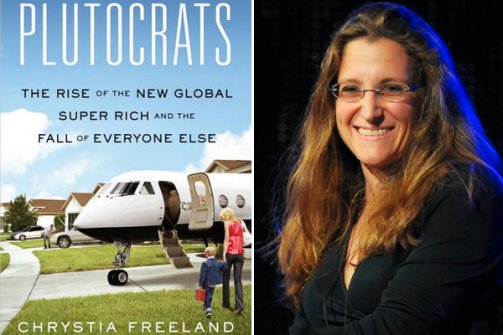The middle class is declining, or is it?
The question has taken on increased resonance in Canada since two respected and informed journalists—Chrystia Freeland and Linda McQuaig—have decided to enter politics.
Ms. Freeland is the author of Plutocrats: The Rise of the New Global Super Rich and the Fall of Everyone Else, and Ms. McQuaig a co-author of The Trouble with Billionaires.
Income inequality is what they know, and presumably what they feel should be a matter of public policy.
If the middle class is not shrinking then the policy program these individuals have to offer, and by reflection some of the policies of the political parties they hope to represent—the traditionally centrist Liberal Party in Ms. Freeland’s case, and the social democratic New Democratic Party in the case of Ms. McQuaig—are brought into question.
And that is what a number of observers have already done, arguing that the facts show the Canadian middle class is not under threat, and that those who argue otherwise—like Ms. Freeland and Ms. McQuaig—are spending too much time looking at American trends.
So this is an economic fact with some political impact.
My look at the numbers focuses on both incomes (the total amount of money a family brings home) and on wage rates (the hourly rate of an individual’s pay).
The trend in incomes is disturbing, but all the more so when viewed in light of a polarizing pattern in wage rates. These trends should be a real concern for public policy, and in my view a focus on other countries, particularly the United States, is one important way to constructively inform that concern.


